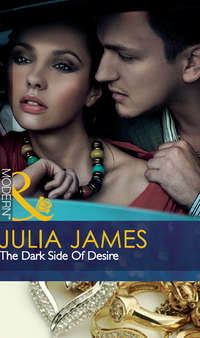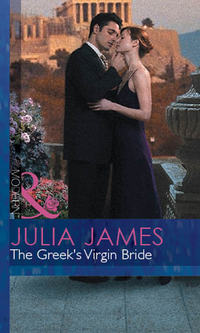
Полная версия
Carrying His Scandalous Heir

Pregnant with the Italian’s child
Aristocratically arrogant Cesare di Mondave dazzled Carla Charteris when he swept into her life. It wasn’t long before the brooding Italian stole her innocence, and her heart. Realizing she’d never be more than a mistress was devastating, but Carla couldn’t deny herself one last night in Cesare’s arms...
When Cesare discovers the shocking consequences, a thrill of possession runs through him. To claim his heir, it’s imperative Carla accepts his proposal—but she defiantly refuses! Now Cesare must use every sinfully seductive skill he has to convince Carla he wants her in the bedroom and at the altar!
‘After such a “lovely evening…”’ Cesare’s amusement was deeper now, his accented English doing even more to make her breathless ‘…there is only one way to end it, no?’
For an instant he held Carla’s gaze in the dim light, daring her to accept, to concede, to do what he wanted her to do—what he’d wanted from the first moment he’d set eyes on her.
‘Like this,’ he said.
He stretched his hand out, long fingers tilting up her face to his as his mouth lowered to hers. Slowly, sensuously, savouring. With skill, with expertise, with a lifetime of experience in how to let his lips glide over hers, to let his mouth open hers to his, to taste the sweetness within. As soft, as sensual as silk velvet.
She drowned in it. A thousand nerve-endings fired as he made free with her mouth, his long fingers still holding her. And when he had done he released her, drew back his hand, let it curve around the driving wheel.
He smiled. ‘Buone notte,’ he said softly.
From Mistress to Wife
From the bedroom—to the altar!
Eloise and Carla have never expected irresistible
passion—until they meet the powerful alpha
billionaires who will steal their innocence. But nights
of passion can have unexpected consequences…
When Eloise Dean falls at Vito Viscari’s feet,
they are both overcome with a desire
they can neither resist nor deny!
Claiming His Scandalous Love-Child
Carla Charteris knows falling for the enigmatic
Count of Mantegna will only bring heartache, but
what will happen when temptation proves irresistible?
Carrying His Scandalous Heir
Available now!
You won’t want to miss this passionately sexy duet
from Julia James!
Carrying His Scandalous Heir
Julia James

www.millsandboon.co.uk
JULIA JAMES lives in England and adores the peaceful verdant countryside and the wild shores of Cornwall. She also loves the Mediterranean—so rich in myth and history, with its sunbaked landscapes and olive groves, ancient ruins and azure seas. ‘The perfect setting for romance!’ she says. ‘Rivalled only by the lush tropical heat of the Caribbean—palms swaying by a silver sand beach lapped by turquoise waters… What more could lovers want?’
Books by Julia James
Mills & Boon Modern Romance
A Cinderella for the Greek
A Tycoon to Be Reckoned With
Captivated by the Greek
The Forbidden Touch of Sanguardo
Securing the Greek’s Legacy
Painted the Other Woman
The Dark Side of Desire
From Dirt to Diamonds
Forbidden or For Bedding?
Penniless and Purchased
The Greek’s Million-Dollar Baby Bargain
Greek Tycoon, Waitress Wife
Mistress to Wife
Claiming His Scandalous Love-Child
Visit the Author Profile page at
millsandboon.co.uk for more titles.
For Kathryn—thank you for all your hard work!
Contents
Cover
Back Cover Text
Introduction
From Mistress to Wife
Title Page
About the Author
Dedication
CHAPTER ONE
CHAPTER TWO
CHAPTER THREE
CHAPTER FOUR
CHAPTER FIVE
CHAPTER SIX
CHAPTER SEVEN
CHAPTER EIGHT
CHAPTER NINE
CHAPTER TEN
CHAPTER ELEVEN
CHAPTER TWELVE
Extract
Copyright
CHAPTER ONE
CARLA LOOKED AT her watch for the umpteenth time, glancing out across the crowded restaurant towards the entrance. Where was he? Anxiety bit at her, and an emotion more powerful than that—one she had never felt before. Had never thought to feel about the man she was waiting for.
She had thought only to feel what she had felt the first time she had set eyes on him. And she so desperately wanted to set eyes on him again now—walking in, striding with his effortlessly assured gait, tall and commanding, with that inbuilt assumption that he could go wherever he liked, that there would always be a place for him, that people would move aside to let him through, that no one would ever dream of turning him down or saying no to him—not about anything at all.
She had not turned him down. She had denied him nothing—granted him everything. Everything he’d ever wanted of her...
Memory, hot and fervid, scorched within her. From the very first moment those hooded night-dark eyes had rested on her, assessing her, desiring her, she had been lost. Utterly lost! She had yielded to him with the absolute conviction that he was the only man who could ever have such an impact on her. That moment was imprinted on her—on her memory, on her suddenly heating body...on her heart.
Memory scorched again now, burning through her veins...
* * *
The art gallery was crowded with Rome’s wealthy, fashionable set, and champagne and canapés were circling as Carla threaded her way among them, murmuring words of greeting here and there.
Reaching for a glass of gently foaming champagne, Carla knew that she herself could be counted as one of them. Oh, not by birth or breeding, but as the stepdaughter of multi-millionaire Guido Viscari she could move in circles such as these and hold her own and look the part.
Her cocktail dress in a deep blue raw silk had come from one of the currently favoured fashion houses, and it hugged a figure that easily passed muster amongst all the couture-clad females there. Her face, too, as she well knew, also passed muster. Her features veered towards the dramatic, with eyes that could flash with fire and full lips that gave a hint of inner sensuousness.
It was a face that drew male eyes, and she could sense them now—especially since she was there on her own. Unlike many of the other guests, she had a genuine reason for attending this private viewing other than simply being there to while away an hour or so before dining.
But she’d long got used to the constant perusal that Italian men habitually bestowed upon females. It had shocked and discomfited her ten years ago, when she’d been a raw English teenager new to Italian life, but since then she’d grown inured to it. Now she hardly ever noticed the looks that came her way.
Except—She stilled suddenly, the champagne glass halfway to her lips. Someone was looking at her. Someone whose gaze she could feel on her like a physical touch. Her eyes shifted their line of sight. Someone who was making her the centre of his observations.
And then, as her gaze moved, she saw him.
He’d just come into the gallery. The receptionist at the welcome desk was still smiling up at him, but he was ignoring her, instead glancing out across the room. Carla felt a little thrill go through her, as though somewhere deep inside her a seismic shock were taking place, and she noticed his gaze was focussing on her.
She felt her breath catch, seize in her throat. She felt a sudden flush of heat go through her. For the man making her the object of his scrutiny was the most devastating male she had ever seen.
He was tall, powerfully built with broad shoulders, his features strong...compelling. With a blade of a nose, night-dark hair, night-dark eyes, and a mobile mouth with a twist to it that did strange things to her.
Unknown things...
Things she had never experienced before.
The flush of heat in her body intensified. She felt pinned—as though movement were impossible, as though she had just been caught in a noose—captured.
Captivated.
For how long he went on subjecting her to that measuring, assessing scrutiny she could not tell—knew only that it seemed to be timeless.
She felt her lungs grow parched of oxygen... Then, suddenly, she was released. Someone had come up to him—another man, greeting him effusively—and his eyes relinquished hers, his face turning away from her.
She took a lungful of air, feeling shaken.
What had just happened?
The question seared within her...and burned. How could a single glance do that to her? Have such an effect on her?
Jerkily, she took a mouthful of champagne, needing its chill to cool the heat flushing through her. She stepped away, averting her body, making herself do what she had come there to do—study the portraits that were the subject of the exhibition.
Her eyes lifted to the one opposite her.
And as they did so another shock went through her. She was staring—yet again—into a pair of night-dark eyes. The same eyes...the very same.
Night-dark, hooded, sensuous...
That little thrill went through her again, that flush of heat moved in her body. The portrait’s eyes seemed to be subjecting her to the same kind of measuring scrutiny that the man by the door had focussed on her.
She tore her eyes away from the face that looked out at her from the portrait. Moved them down to the brass plate at the side of the frame. She hardly needed to read it—she knew perfectly well who the artist was.
Andrea Luciezo, who, along with Titian, was one of the great masters of the High Renaissance. His ability to capture the essence of those who had sat for him—the rich, the powerful, the men who had controlled the Italy of the sixteenth century, the women who had adorned them—had brought them vividly, vibrantly, to life. Luciezo—whose dark, glowing oils, lustrous and lambent, infused each subject with a richly potent glamour.
Her eyes went from the name of the artist to that of his subject. She gave a slow, accepting nod. Yes, of course.
Her gaze went back to the man in the portrait. He looked out at all those who gazed at him with dark, hooded, assessing eyes. She looked at the powerful features, the raven hair, worn long to the nape of the strong neck, his jaw bearded in the fashion of the time, yet leaving unhidden the sensuous line of his mouth, the unbearably rich velvet of his black doublet, the stark pleated white of his deep collar, the glint of precious gold at his broad, powerful chest.
He was a man whom the artist knew considered his own worth high, whose portrait told all who gazed upon it that here was no ordinary mortal, cut from the common herd. Arrogance was in that hooded gaze, in the angle of his head, the set of his shoulders. He was a man for whom the world would do his bidding—whatever he bade them do...
A voice spoke behind her. Deep, resonant. With a timbre to it that set off yet again that low, internal seismic tremor.
‘So,’ he said, as she stood immobile in front of the portrait, ‘what do you think of my ancestor, Count Alessandro?’
She turned, lifted her face, let her eyes meet the living version of the dark, hooded gaze that had transfixed her across the centuries—the living version that had transfixed her only moments ago and was now transfixing her again.
Cesare di Mondave, Conte di Mantegna.
The owner of this priceless Luciezo portrait of his ancestor, and of vast wealth besides. A man whose reputation went before him—a reputation for living in the same fashion as his illustrious forebears: as if the whole world belonged to him. To whom no one would say no—and to whom any woman upon whom he looked with favour would want to say only one thing.
Yes.
And as Carla met his gaze, felt its impact, its power and potency, she knew with a hollow sense of fatalism that it was the only word she would ever want to use.
‘Well?’
The deep voice came again and Carla realised that she needed to speak—had been commanded to answer him. For this was a man who was obeyed.
But she would not obey immediately. She would defy him in that, at least.
Deliberately she looked back at the Luciezo, making him wait. ‘A man of his time,’ she answered finally.
As you are not a man of your time.
The words formed in her head silently, powerfully. No, the current Conte di Mantegna was not a man of the twenty-first century! She could see it in every austere line of his body. He carried his own ancient ancestry in the unconscious lift of his chin at her reply, in his dark brows drawing together.
‘What do you mean by that?’
Again, the question demanded an immediate answer.
Carla looked back at the portrait, gathering her reasons for the reply she had made him.
‘His hand is on the pommel of his sword,’ she essayed. ‘He will slay any man who offers him insult. He subjects himself to the scrutiny of one who can never be his equal, however much genius Luciezo possesses, simply in order that his illustrious image can be displayed. His arrogance is in every line, every stroke of the brush.’
She turned back to the man who had commanded her to speak. Her answer had displeased him, as she had known it would.
There was a dark flash in his eyes, as he riposted, ‘You mistake arrogance for pride. Pride not in himself but in his family, his lineage, his honour. An honour he would defend with his life, with his sword—that he must defend because he has no choice but to do so. The artist’s scrutiny is to be endured because he must be ever mindful of what he owes his house—which is to protect it and preserve it. His portrait will be his persona in his own absence—it will persist for posterity when he himself is dust.’
The night-dark eyes went to those in the portrait. As if, Carla thought, the two men were communing with each other.
Her brow furrowed for an instant. How strange to think that a man of the present could look into the eyes of his own ancestor... That, in itself, made il Conte entirely different from all those who—like herself—were simply cut from the common herd of humanity...who had no knowledge of their ancestors from so many centuries ago.
Her expression changed, becoming drawn for a moment. She didn’t even know of her own more immediate forebears. Her father was little more than a name to her—a name reluctantly bestowed upon her when her mother’s pregnancy had required that he marry her, only for him to be killed in a car crash when she was a small child. His widow had been unwelcome to her in-laws, and Carla had been raised by her mother alone until her remarriage to Guido Viscari when Carla was a young teenager.
I know more about my stepfather’s family than I do about my own father’s!
To a man like il Conte that very ignorance about her paternal forebears must seem incomprehensible, for he would know the identity of every one of his entire collection of ancestors for centuries—each of them doubtless from families as aristocratic as his own.
With such a heritage she could not be surprised by his immediate retort. Yet she had one of her own.
‘Then it is entirely to the credit of Luciezo’s mastery that he can convey all that with his portrait,’ she replied, making her voice even. ‘Without his genius to record it your ancestor is merely dust.’
There was defiance in her voice—and an open assertion that, however many heraldic quarterings the illustrious Conte di Mantegna was possessed of, none could compare with the incomparable genius of a great master such as Luciezo.
That dark flash came again in the depths of the Conte’s eyes. ‘Will we not all be dust in years to come?’ he murmured. ‘But until that time comes...’
Something changed in his voice—something that suddenly made the heat flush in her blood once more, as it had done when she had realised his gaze was upon her.
‘Should we not carpe diem?’
‘Seize the day?’ Carla heard her voice answering. But inside her head she was registering that sudden change in the Count’s voice, the smoothing of that low timbre. She could see, now, the change in his eyes. He was looking at her. Approving of what he saw. Sending that flush of heat through her again.
‘Or, indeed, seize the evening,’ he murmured again, with the slightest husk in his voice.
And now there was no mistaking the message in his voice. None at all. Those dark, long-lashed hooded eyes were resting on her, and the message in them was as old as time.
She pleased him. Her appearance, at any rate, even if her words did not. But their exchange had merely been the mechanism by which he had approached her—had given him the opening he desired, by which he would obtain the end he sought.
The end he now stated openly.
‘Have dinner with me tonight.’
It was as simple as that. As straightforward. His dark, expressive eyes were resting on her, and Carla felt their impact—knew their message. Knew what reply she should make to this powerful, sensual man, who was displaying every obvious sign of his intent.
Her habit had always been to say no—the few relationships she’d had over the years had never been with Italians, nor conducted in Rome under the avidly speculative glare of the circles in which she moved. And never had she fancied herself to be deeply emotionally involved. It had been only friendship and compatibility that attracted her—no more than that. It was safer that way. Safer than yielding to any overriding sensual attraction that might ignite a passion that would be hard to quench.
After all, no one knew better than she what that might lead to. Hadn’t it happened to her own mother? Falling for a man who, when he’d been faced with unintended pregnancy, had not wished to commit to her?
Although his father had cracked the financial whip and forced a marriage, there had been no happy ending. Her father had chafed at marriage, chafed at fatherhood—and had been on the point of leaving her mother when he was killed. Was it any wonder, Carla asked herself, that she was wary of making such a mistake herself?
So, for every reason of good sense, there was only one reply for her to make to this arrogant, sensual man who possessed the power to disturb her senses.
Yet she could not say the words. Could only find the means to give a slight, fleeting, demurring half-smile, and a self-protective sweeping down of her eyelashes to hide the all too revealing response in her eyes as she made an evasive reply.
‘So...have you loaned any other paintings to the exhibition?’ she asked.
Her voice sounded abrupt, even breathless, but she did not care. She met his gaze head-on, keeping hers quite limpid, though the effort was great—the more so since in his eyes was a look of knowingness that told her he had understood immediately why she had not answered him.
But to her relief he followed her diversion.
‘Indeed,’ he murmured, still with that semi-amused look in his eyes that was so disturbing to her. ‘The Luciezo is, in fact, part of a triptych. The other two portraits are on display across the gallery.’
There was a discernible tinge of annoyance in his voice at the curator’s decision as he indicated across the width of the gallery, towards an alcove in which Carla could make out two portraits.
‘Shall we?’
The cool voice held assumption, and Carla found herself being guided forward. He halted, lifting his hand to the portraits they were now in front of.
‘What do you make of them?’
Carla’s trained eyes went to the portraits, immediately seeing the skill and artistry in them, seeing in them all the hallmarks of a master. Her eyes narrowed very slightly. But not Luciezo.
‘Caradino?’ she ventured.
She felt rather than saw the glance the Count threw at her. Surprise—and approval.
‘Caradino,’ he confirmed. He paused. ‘Many attribute his few surviving works to Luciezo.’
She gave a slight shake of her head. ‘No,’ she said. ‘There is a discernible difference.’
Her eyes ran over the portraits, taking in the brushwork, the lighting, the shadows. Her gaze went from appraising the technicalities of the portraits to the subjects themselves. And then, for the first time, her eyes widened as her gaze rested on their faces.
So unalike. So very, very unalike.
One so fair and pale. A married woman, clearly, as illustrated by the tokens in the painting—her pearl earring, the sprig of myrtle in her lap, the dish of quinces on the little table at her side—and yet there was about her, Carla could see, an air almost of virginity...as if with different garments and accoutrements she might have modelled for a painting of the Virgin Mary.
A crucifix was in her hands, glinting between her long, pale fingers. Carla looked at the woman’s eyes.
Sadness. As if, like the Virgin Mary, she had in her gaze a foretelling of the great sorrows that were to come.
She pulled her gaze away. Let it rest on the other woman’s face.
Another young woman. In this portrait the subject’s hair was a lush chestnut-brown, lavishly unbound and snaking down over one bare shoulder. Her gown was a sumptuous red, not a celestial blue, and cut low across her generous bosom to reveal an expansive amount of soft, creamy skin. She held red roses in her hands, rubies gleamed at her throat and on her fingers, and her hands rested on her abdomen—its slight swell discreet, but undeniable.
Carla drew her eyes away from the telltale curve of the young woman’s figure, moved them back up to scrutinise her face. Beautiful, in a sensuous way, framed by her rich tresses, her cheeks flushed, lips full and with a sensual cast to them. Carla’s eyes went to the woman’s eyes and held them for a long moment—held the unseeing gaze that looked out over the centuries between the two of them.
‘Who are they?’
Her own voice cut short her perusal, and she drew her gaze away to look back at il Conte, standing at her side.
‘Can you not tell?’ he asked. He glanced back to the portrait of his ancestor, across the room, then back to Carla. ‘His wife—and his mistress. He had them painted at the same time, by the same hand. Caradino stayed at my castello and painted them both—one after the other.’
Carla’s face stilled. ‘How nice for them,’ she said drily. ‘It seems your ancestor kept his mistress...handy.’
But the Count did not rise to her sardonic comment. ‘It was quite normal in those times. Nothing exceptional. Both women knew and understood the situation.’
Carla’s lips pressed together. ‘Knowing and understanding are not the same thing as tolerating and agreeing,’ she riposted.
The dark, hooded eyes were veiled. ‘Women had no power in those times. And after all,’ he went on, ‘my ancestor’s mistress was very lavishly looked after.’
‘She’s carrying his child,’ Carla retorted.
She could feel an emotion rising up in her—one she did not want to feel, but it was coming all the same.
‘An excellent way to secure the Count’s protection,’ agreed Cesare. ‘I believe they had several children, over the years. He was very faithful to her, you know. Surprisingly so for the times.’









